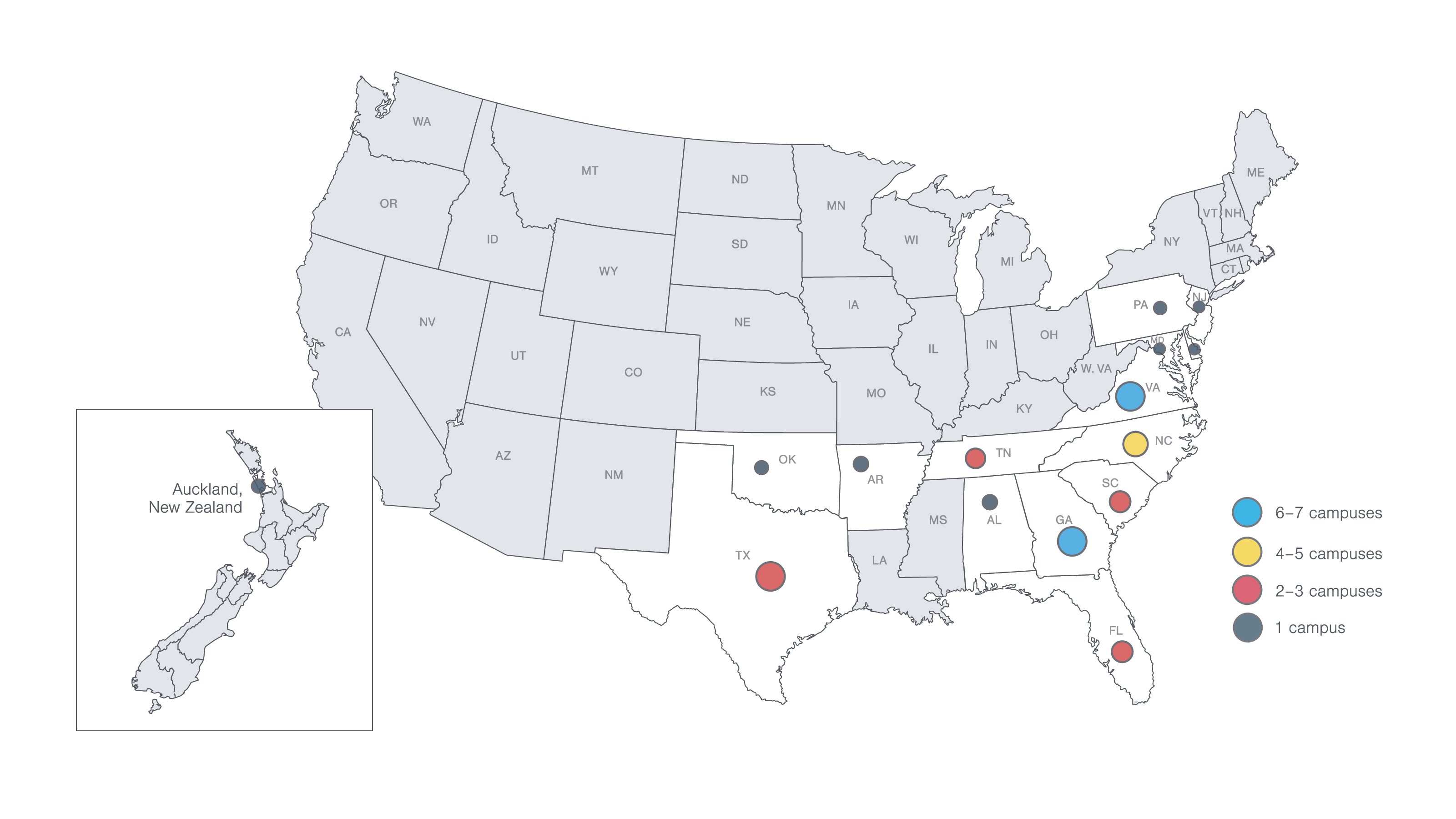Here’s a no-cost way to complete gen eds. Get details
Online Bachelor of Science in Criminal Justice Crime and Criminal Behavior
PROGRAM AT A GLANCE
Why earn a degree in crime and criminal behavior?
Our BS in Criminal Justice, Crime and Criminal Behavior program gives you a chance to better understand the factors that lead to criminal activity. You’ll gain actionable knowledge you can use, from the street to the courthouse, to help prevent crime and protect society.
Help prevent crime by understanding the criminal mind
Gain a better understanding of the roots of criminal behavior and how to prevent crime through evidence-based approaches. Strayer’s Bachelor of Science in Criminal Justice, Crime and Criminal Behavior examines the social factors that lead to crime as well as why individuals engage in criminal or delinquent behavior. You’ll learn how criminological theories are used to design real-world crime prevention programs and inform decision-making in the justice system. The curriculum also explores the evolving role of policing and the challenges law enforcement agencies face today.
Why choose Strayer for a Bachelor of Science in Criminal Justice, Crime and Criminal Behavior?
A Strayer degree can help prepare you for career opportunities in criminal justice while offering support, flexible learning options and career planning every step of the way.
- Understand the causes of crime and its effects on society
- Apply ethical thinking and judgment to a wide range of criminal justice situations
- Identify the increasingly complex and powerful technologies used in fighting crime
- Communicate effectively, share information, persuade others and manage conflicts
- Think critically to effectively investigate crimes, enforce laws and implement corrections
Earn your degree from an accredited university
Strayer University is an accredited institution and a member of the Middle States Commission on Higher Education (MSCHE or the Commission) www.msche.org. Strayer University’s accreditation status is Accreditation Reaffirmed. The Commission’s most recent action on the institution’s accreditation status on June 22, 2017 was to reaffirm accreditation. MSCHE is recognized by the U.S. Secretary of Education to conduct accreditation and pre-accreditation (candidate status) activities for institutions of higher education including distance, correspondence education, and direct assessment programs offered at those institutions. The Commission’s geographic area of accrediting activities is throughout the United States.

Bachelor of Science in Criminal Justice in Crime and Criminal Behavior cost breakdown
- 40 courses, $1555 per course
- $65 technology fee each term
- $150 one-time degree conferral fee
- $100 resource kit per course
Estimate the cost of your degree
How much does a Bachelor of Science in Criminal Justice in Crime and Criminal Behavior cost?
Estimate the cost of your degree
How much does a Bachelor of Science in Criminal Justice in Crime and Criminal Behavior cost?
Expected Graduation
...
Approximate Total
...
*Student is required to take two courses per quarter during disbursement period
PREPARING YOUR RESULTS
Time commitment
Calculate the approximate time commitment of your degree.
| Course load | ... courses/term |
| Classroom time | ... hours/week |
| Terms per year | ... terms |
| Terms to graduation | ... terms |
Cost analysis
Calculate the approximate cost of your degree
| Tuition | ... |
| Books | ... |
| Fees | ... |
| No-cost gen ed | $0 |
| Transfer credits | ... |
| Transfer Credit Scholarship | $0 |
| $4K scholarship | $0 |
| Strayer Learn and Earn Scholarship | $0 |
| Approximate total | ... |
Opportunities to save on tuition
Employer Tuition Assistance
More than 500 organizations invest in their employees by partnering with Strayer University to offer access to discounted education programs.
The Strayer Learn and Earn Scholarship
For every three courses you pass, earn one on us, tuition-free, to be redeemed at the end of your program with the Strayer Earn and Learn Scholarship. Eligibility rules and restrictions apply. Connect with us for details.
Save up to $15,250 on your bachelor’s degree
As a Strayer student, you have access to no-cost gen ed courses through our affiliate, Sophia. Take up to two online Sophia courses at a time and transfer eligible courses towards your undergraduate degree.
*Savings assumes transferring 10 courses taken at Sophia. Eligibility rules apply. Connect with us for details.
Explore courses in Strayer’s Bachelor of Science in Criminal Justice, Crime and Criminal Behavior
What really drives people to commit crimes? In this concentration, you’ll explore the psychological and social factors that influence criminal behavior, and how criminology theory can inform crime prevention programs. You’ll also examine the contributions of forensic psychologists to the legal system as well as the role gangs and organized crime play in drug-related offenses.
Crime and Criminal Behavior concentration courses
Examine the organization and practice of the Department of Homeland Security and the terrorist threats that dictate its operations. Topics include foundations of homeland security, terrorism, countermeasures and response to terrorist threats.
This course provides a broad range of topics relevant to criminal behavior and the development of the personality. Biological, psychological, and social structural factors which influence the possible origin of criminal behavior, as well as criminal justice and societal approaches for preventing crime, are addressed.
This course links research methods, application, and expertise in the field of psychology to the legal system. Students will be exposed to the field with a richer understanding in how forensic psychologists contribute to the legal system, including expert testimony, jury selection, insanity defenses, child custody hearings, and release and reentry of violent offenders.
This course examines various crime and delinquency prevention policies and programs. Topics covered include the historical development of crime and delinquency prevention methods, theoretical applications to prevention efforts, and research findings on program effectiveness. Students are exposed to the importance of research design in evaluating effective prevention strategies as well as the relationship between fear of crime and victimization. You have options: choose this course, or CRJ310 Law Enforcement Operations and Management.
This course addresses the use and abuse of drugs and alcohol, both legal and illegal; the etiology, social phenomena, psychological and physiological effects, and current relationship between gang activity and drugs, as well as organized crime and the drug epidemic in the United States and abroad. Students will also be exposed to the historical rise in popularity of gangs associated with the drug trade and the rise and fall of power of organized crime syndicates and drug distribution.
FAQs
How does online learning work?
Complete your degree from where you live, on your time, in a flexible, 100% online program. Using our online portal, you’ll be able to:
- Access lectures and coursework
- Complete assignments and exams
- Communicate with professors and classmates
- Access student resources and support
What support services does Strayer provide?
From day one, you’ll have a team of advisors and coaches to help you balance college, work and your personal life. Tap into support resources online or at a campus near you.
You’ll have access to:
- Admissions and enrollment support
- One-on-one academic coaches
- Financial guidance and potential cost savings
- Career planning services
Criminal Justice faculty
The faculty at Strayer University bring years of real-world industry experience to the classroom, offering valuable insight and practical knowledge. They are committed to supporting your professional goals and are responsive to questions and concerns through the virtual courseroom.
Apply for your Crime and Criminal Behavior degree today
An admissions officer can help you choose the right program, register for classes, transfer credits and find cost-savings opportunities.
Here’s what you’ll need to get started:
Spring classes start on April 6
Learn more about Strayer University’s admissions process.
Transferring to Strayer from another university?
Your bachelor’s degree from Strayer could be 70% complete when you transfer up to 28 classes.
Strayer welcomes international students
Strayer University is proud to have hosted more than 4,000 international students from over 110 countries. Earn your degree in the U.S. or completely online in your home country – it’s your choice.


Campus locations
Come to a campus near you for guidance and support. You’ll have access to helpful resources, a supportive community and plenty of spaces to learn and grow.
Ready to take the next step?
Your admissions officer is here to guide you through every step of the process, from completing your application to choosing your concentration.